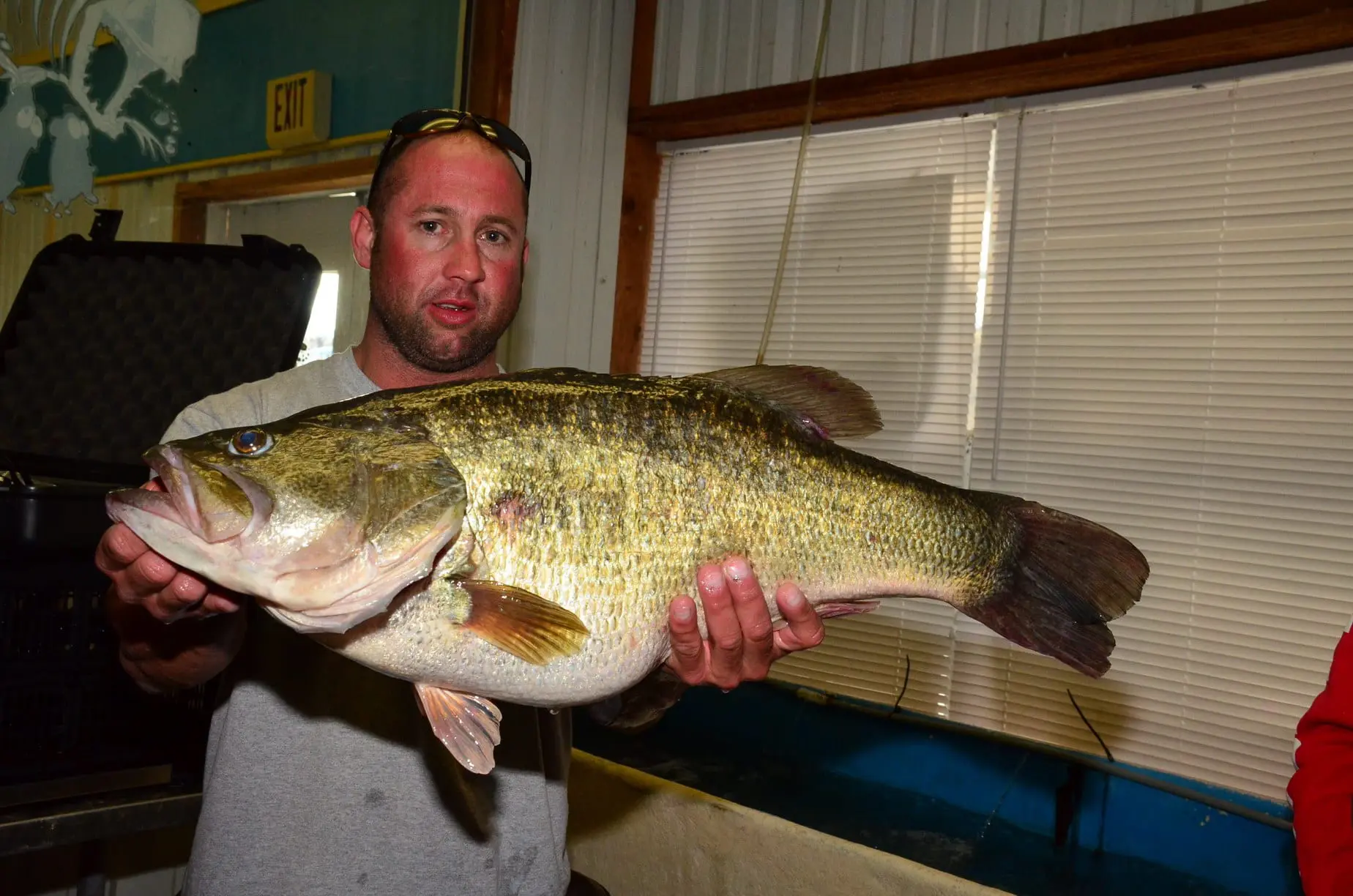Written by Conor Harrison, Lone Star Outdoor News
Four out of six largemouth bass weighing more than 13 pounds and entered into Texas Parks and Wildlife Department’s Sharelunker program this past season died.
That’s 66 percent for the non-math majors. Not the best number when trying to keep these big fish alive and spawn them for future offspring.
The program released this statement on its Facebook page, saying the cause of death has been improper handling of the fish.
“Three of this year’s five ShareLunkers have come in with broken jaws,” the program said in a statement. “Two have died. The other has been returned to the lake. The only explanation we have for the broken jaws is fish being held vertically by the lower jaw. Broken jaws can kill fish in two ways. An infection can start at the break and invade other organs. Or, the fish may not be able to feed and will starve. To prevent broken jaws, big fish should always be supported with two wet hands, one gripping the lower jaw and the other under the tail. We recommend that any fish weighing 7 pounds or more be handled with two hands. Fish should be landed with a net and not lipped. The lower jaw should never be rolled under so the fish can be held up for pictures. Fish should be handled as little as possible (no multiple picture-taking sessions) and kept in a well-aerated live well until placed in a minnow tank or picked up by TPWD. Pictures of the angler with the fish can be taken at that time.”
Many anglers responded on Facebook with negative and positive comments about the program.
“You guys will notice a decline in share lunkers,” said Chris Jacobus. “I’ve talked to many, many anglers and they are not going to report them because they die all the time. Rather put them back in the lake to live for another day.”
All programs will have a bad time,” said Wes Gustin. “If it was the handling from the angler that caught them before (they were) picked up by program that is the cause of death, then even if let go back they would still die, you just wont hear about it. I for one still think that the program does more good than bad. I will continue to support it and the many that I fish with still love the program.”
“I think the program has many more positive outcomes than negative,” said Jack Campbell. “Hopefully, they can find the problem and solve it. Education and care for the fish is the most important thing.”
“Yep, I’m not happy with this program either,” said Glen Douglas. “I have a passion for bass fishing and I am catch and release, take a picture and let um go.”


